Applying Capitalism In Today’s Market with Ryan Moran
Podcast: Play in new window | Download
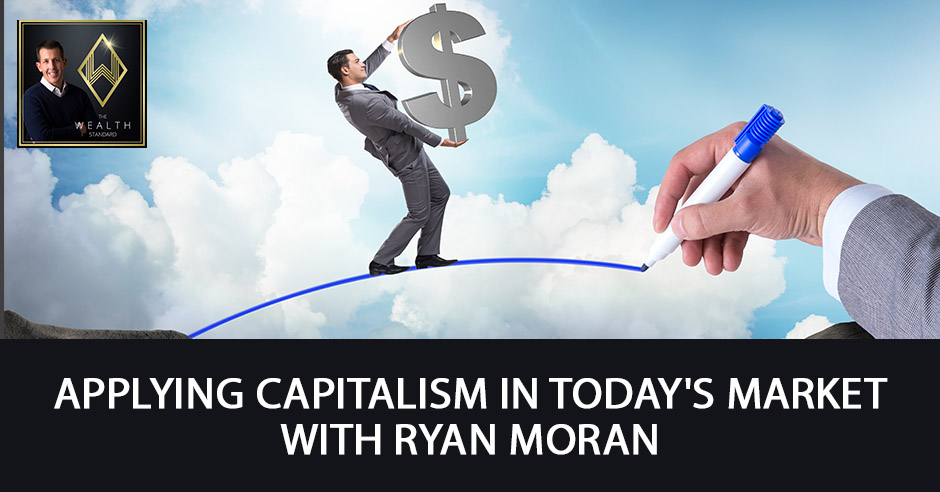
—
Watch the episode here:
Listen to the podcast here:
Applying Capitalism In Today’s Market with Ryan Moran
My guest is Ryan Daniel Moran. He is the Founder of Capitalism.com and host of The One Percent podcast. He’s a father, a Browns fan and a future owner of the Cleveland Indians. This is going to be an awesome show. I’m stoked because you’re the owner of Capitalism.com. I’m sure there’s a cool story to that in addition to having that site. There’s a big responsibility if you’re branding that domain and how you’ve come to understand capitalism. I’d like to start with how you are defining capitalism.
My favorite definition of the word capitalism was from Hayek. He says, “It’s an increasing system of strangers serving one another.” It’s a system through which we are incentivized to serve one another. I had an economics professor in college. His name was Dr. Ivan Pongracic and he had escaped Soviet Russia. He was almost caught smuggling Elvis records and Fender guitars across the borders. They made it punishable by death if you did that. He said, “You know what I did? I raised the price.” He used to talk about capitalism was the system through which we practiced freedom.
In order for us to get ahead, we have to serve one another. It’s where we are incentivized to do so. That’s also why we see such a pushback on the left against capitalism is because we’ve forgotten that it’s simply the way we exercise freedom. When we go in and try to fix freedom or force freedom or try to allocate freedom to be more “responsible,” we distort it. We all agree that personal freedom and freedom is a high aim. When we can put capitalism as the protector of freedom, the system through which we have freedom, it’s a universal principle that no one can disagree with.
It seems everyone would agree with you on this notion of freedom, so why is there such disdain for capitalism?
It’s because of short-term desires. If your reference point was several years ago, then you are naturally going to look ahead only for the next few years. If your reference point is 100, 200, 500 or 1,000 years, the path forward is obvious. It’s like trading stocks versus being an investor. It’s like flipping houses versus being an income investor. It’s like trying to make money on the internet versus building an internet business. Capitalism is the same. If a twenty-year-old is looking at the state of the world compared to when he or she was eight, there’s not a good reference point for how the world acts.
All that person is going to see is problems. They’re going to see who doesn’t have healthcare. They have no reference point for who had healthcare 100 years ago. They’re going to look at the way they think the world should be through the lens of problems rather than looking at the trend of the world over the last hundred years. If you have never traveled, if you haven’t lived a few decades, if you haven’t studied history, you would have a short-term view of the world in which you only saw problems. Our job is to paint a different picture and to be relentless defenders of that freedom so that the loud voices don’t get a foothold in what we know the world needs to do.
If you were in a debate contest and stood on the other side, how would you defend that, “We’re not 1750, Ryan. We don’t trade wine and bread and potatoes. We’re in a civilized modern society where healthcare should be a right.” How do you take that stance and defend it against capitalism?
The way we defend that stance is by coming back to the fundamental agreement that we want the same things. I have a high percentage of liberals converted because most of them have the perspective that a conservative or a libertarian doesn’t want poor people to have healthcare. We have to dispel that myth. We have to say, “I have the same goal as you of ensuring that the least of those around us have access to quality and affordable healthcare. Let me tell you why my plan is a better way to get that than somebody else.
I heard Naval Ravikant talk about Universal Basic Income. He was talking with Scott Adams. When Scott Adams asked him what he thought of Universal Basic Income and Naval said, “We’re going to have it. It’s going to come from the private sector. We’re going to have phones be so cheap that Google will give them out so that you use their apps and their platform.” You’ll basically have a universal standard of living. We don’t need it to come from the government. That type of argument is how I persuade the other side to come to our side of the argument. You say, “We’re after the same goal.” Your way of getting there is to trust Trump and all of his friends to come up with a plan. How confident are you in that happening? My plan is this and I have a high percentage rate of getting people to convert after that.
Challenges will always occur, but there are always people looking to solve challenges. It’s like an instinct in us. We see the challenge where we will look for opportunities. I always look at The Jungle Book where Mowgli is this character that’s different from the rest of the forest because they’re to survive and he has this instinct to come up with solutions for this and solutions for that. That’s human nature. Even though we have challenges, when you do create that environment of freedom, people are able to exercise and are able to try things. Ultimately, there are solutions that create the betterment of everyone. At the same time, there’s a little time involved there. Whereas writing a check to somebody is the easiest thing to do and typically people want that short term solution. That’s where they tend to go and to gripe about.
Our brains are wired to produce happiness as a byproduct to increases in survival chances. Happiness is an illusion. Happiness is chemicals that fire when our brains think we have a higher chance of surviving. The only way we do that is by solving problems. We solve the threats that we have to our own survival. We unlock happiness by solving problems. Biologically, we are wired to solve problems. Unfortunately, we tend to fire short-term versus long-term if we’re in a threat situation and most people have the perception of threat, even though our livelihoods and our survival is as good as it has ever been.
Ray Dalio was talking about this whole idea of Universal Basic Income and the threat of artificial intelligence and people are going to be displaced by jobs. There are many solutions that the government can come up with, but there’s something about humans where there has to be a fulfillment side of their life. If there’s not, then life becomes the opposite. It’s unhappy. When you’re not able to solve those problems, it robs people of the opportunity to find fulfillment or find happiness.

Applying Capitalism: Happiness is a chemical that fires up when our brains think we have a higher chance of surviving, and the only way that we do that is by solving problems.
I think those of us who identify as Capitalists or Libertarian should be disappointed in Ray Dalio. I don’t know where his tune changed of seeing the pie that he created and started to feel guilty about it. His entire thesis on this speaking tour that he’s been going on is that we need a better way to allocate pieces of the pie. What Dalio mistakes and seems to overlook is there is no pie. There is no limited amount of value. He should know, he created a big one. He helped a lot of people along the way.
He aggregated a lot of capital.
That’s a good distinction. Based on his background when he’s raising capital from a lot of places, there’s a fixed amount versus it being a creation. Overall as a community, I think we should be disappointed in the message that he’s starting to spread.
I want to dive into your story around Capitalism.com because it’s one of those things that you buy and you can monetize. At the same time, if you have a philosophy around what it means and what you want the world to understand what it means, that’s a big responsibility. What’s the story behind your intrigue and interest in the idea of capitalism? Maybe your parents were these staunch-like Libertarian F.A. Hayek followers and you went to Mises University when you were little.
I went to college to be a pastor and I did not go that route. I had an economics professor who basically gave a talk that changed my life where he was talking about how the greatest way we can find nods or find our greatest purpose or find our maximum dollar amount. However you divide that up, our highest calling is by using the marketplace. Seeing price as an indication of where there was a need or where there was a value or where there were opportunities to create something. That completely changed my brain and altered the course of my life and my career. Add that in with some doubts that I had about my faith, it was a perfect time for me to make a switch. I ended up going to school and studying economics while building my first business, while the 2008 crash and the election were all going on at the same time.
Those were my formative years and the opportunity to acquire the name that represented all of my biggest interests was presented to me and it was to acquire Capitalism.com. Since then we’ve been building out events and a platform for entrepreneurs because I believe ultimately we only change minds and we change direction by changing individuals. I don’t think that debate on a grand scale is how we ultimately change people’s mind, we lead by example. At Capitalism.com, we help entrepreneurs build businesses and invest the profits and I’m playing the long game. The more millionaires you create, the more kids you have with those financially-educated individuals as parents. That’s ultimately how we change perspectives.
In order for us to get ahead, we have to serve one another. Share on XLet’s talk about applied capitalism. There are a lot of ways to approach this, but business has changed significantly as far as how capital is raised. In some cases, profitability doesn’t even matter. A right to raise capital is an idea matter. How are you applying what you’ve learned about capitalism in that philosophy to what you teach others about businesses and maybe how you treat your own businesses?
Your basic capitalist theory, things get easier over time. Resources get freed up. You have more access to opportunity. That is your point about things changing so much in the few years. Capital is abundant. The opportunities for advertising are cheaper than ever, at a higher scale than ever. Any message can go viral at any time. Things continue to get easier. I don’t buy into this narrative that it’s somehow getting harder. It’s getting easier and there are more opportunities. However, it’s changing faster. You have more creative destruction than ever before. We all love it until it happens to us, but if we’re going to be consistent with our argument then we have to either adapt or go find a business. We see capitalism in action. We see lots of new opportunities be liberated. We see a lot of resources become available. These are things that didn’t exist for us as a society.
Joseph Schumpeter and the whole creative destruction principle is powerful, but it goes to more of the long game than the short game where a lot of the lessons are learned after a lot of the chaos ensues. Hence 2008, 2009 where there are some incredible lessons learned by people. We’ve become stronger because of that not weaker. You are looking at what you discovered as more of a philosophical approach to capitalism based on the economics people of the past, which are not all obviously pro-capitalism. You started to apply that to business, but it sounds like you experienced some of that creative destruction like a business going under, a business becoming obsolete or you hired the wrong team. Did you go through some challenges to learn that principle?
Haven’t we all? If you’re not failing more often than you are succeeding, you probably aren’t a real entrepreneur. I was journaling about the fact that it only takes one big breakthrough in order to pay for all of your failures. Thankfully, we live in this world in which basically all of our needs are met for almost no money. We’re close to having a universal basic living standard. Unfortunately, we’re all comparing ourselves in terms of status, which is why there’s this myth of wealth and equality, which we all know is a myth. Since we have our basic needs met, you can pretty much fail at scale until you win. We all love it until it happens to us, but if you can develop that muscle of being comfortable swinging and missing, then one at-bat is all it’s going to take in order for you to have the impact that you want to have.
I have stopped measuring progress in dollars because dollars are a commodity. Wealth is a way to make things happen faster. The more dialed in you are to the type of life you want and the things you want to do, money becomes a byproduct of doing that well. It becomes gasoline for you to make it happen faster. I have changed my tune a little bit where I became an entrepreneur because I wanted money, then you realize all money is a tool to make change happen. If you identify the change you want to have, you can swing and miss all you want, eventually pay dirt happens and that justifies your failures and allows your successes to happen that much faster. It’s the purpose of money and capital in the first place to fuel the distribution of goods and services, to fuel the distribution of good work. That’s what it’s there to do.
What do you use as your primary measurements of whether or not your business is successful?

Applying Capitalism: If you’re not failing more often than are succeeding, you probably aren’t a real entrepreneur.
Part of it is am I happy? Part of it is, do I like doing what I’m doing? Another is client happiness and scale. Are people voluntarily sharing what it is we’re doing? I had a professor in college who was supposedly an expert in this idea of the diffusion curve of distribution. If you get those loud early adopters, they bring them to the rest of the world. If you have a core group of raving fans, they bring your message or your market, they bring your product and service to the rest of the world. Part of how I’m evaluating on it is, “Are people talking about it? Are people diffusing it for me?” If that’s the case, I know I’ve done something well in the world.
Let me break into that a little bit. There was a restaurant chain called Even Stevens. Have you ever heard that before?
I’ve heard of them.
They’re in Chapter 11 bankruptcy, but they had this culture of doing well and impacting people. Their business model was set up where if someone bought a sandwich, one sandwich was donated to the poor. From a profitability standpoint, how do you reconcile wanting to do good and wanting to impact people, yet at the same time bringing in more than there’s going out.
When I was in high school, my first real job is I worked at Dunkin’ Donuts. At the end of the night, we had hundreds of extra donuts. A lot of them went to waste. We threw them away. A lot of them we donated to food shelters. There was so much waste we could give some to shelters. I could take some to school the next day and I did. We could throw away a bunch. There are a lot of wasted donuts. The only way that you can have that type of good waste is if you’re running a profitable enterprise. The people who talk about the TOMS Shoes model and they have their own financial problems with the idea of we’re going to give first. It’s a great idea, but you can give a lot more when you’re running a profitable enterprise. Profit is excess. Profit is extra.
It is a reflection of a gap in the marketplace. That’s a good thing. You are doing well by making a profit. Profit is a reflection of doing well. It’s not like the bad thing you get. Profit is the reflection of you doing well. With that, you can do whatever you want. You already paid your debt to society by doing the good thing in the first place and you have profit as a byproduct. If you want to take that and have a more additional impact, go for it. You’re under no requirement to do so, but you will do more good in putting all of those sandwich profits into more sandwiches and you’ll probably have excess that you can then sustainably giveaway. The idea of doing something that matters and getting paid for it is self-perpetuating and self-rewarding on its own and then you can do what you’d like with the profits.
It only takes one big breakthrough in order to pay for all of your failures. Share on XThe reconciliation then what I’m assuming is obviously you want to be benefiting customers. You want to have a good time, be happy and feel fulfilled in what you’re doing, but at the same time dollars are important from a measurement standpoint to ensure there’s more coming in than going out.
The reconciliation is Even Stevens would have done a lot more good in the world if they were running a profitable enterprise.
As much as we would think there are more supporters of the free market and laissez-faire capitalism and allow people in the markets to solve problems. There is a growing philosophy that has existed for a while using the narrative of social good and that the capitalists and money hoarders are these fat guys that live in big mansions. Let’s talk about Alexandria Ocasio-Cortez who is an interesting political phenomenon and Andrew Yang. Maybe we’ll start with AOC. What’s your pulse on her? How do you view the attraction to what she is saying and why she’s gained much ground from building a big audience in the inner circles of the Democratic Party but also in society as well?
My pulse on her is that she is extremely smart. She is one of the smartest politicians ever. The idea that she is a stupid 29-year-old Millennial is a false narrative. If you think that, you’ve played right into her hand. If she was not 29-years-old, she would be the Democratic front-runner for President. A waitress turned social media celebrity is already leading the direction of the Democratic Party. You do not do that being an idiot. The only person in politics smarter than AOC is Donald J. Trump.
How do you see the parallel between her and Donald Trump? It was the same way with him, it still is.
They are the two smartest people in Washington, DC.

Applying Capitalism: Universal Basic Income is socialism with lipstick. It’s not an enhanced form of capitalism. It’s just a different way to redistribute from the government.
Do you think she got to that point overnight? She came onto the scenes in a short period of time. Is that a natural ability to be that persuasive? Maybe she was a waitress at an incredible restaurant in New York City, but where did it come from?
It came from a combination of talent. She’s incredibly intuitive in terms of what she needs to say in order to get attention. It’s a talent with what she looks like. If she was a white ugly dude, she wouldn’t have the following that she did. We have to be real about it. We can’t ignore that. We all have natural privileges and what she looks like is one of hers and the other was timing. She’s perfectly well-timed. Her message for her talent stack in this state that the Democratic Party is in where it’s essentially a leaderless party. She walks in and has the benefit of applying that talent stack to this timing. It’s been a combination of all of those things like Donald Trump was a combination of all those things, although he had a much longer game than she did. She’s the benefit of social media and she’s got a good social media strategy. She entered into the conversation when it needed a polarizing figure to counter the President.
You’re taking the stance and this is a deep stake in the ground and a flash in the pan.
I am curious to see what she does. If you look at her overall strategy, she’s already effective in the way that she wants to be effective. The Green New Deal is her wall. I know there are people who disagree with me, but I’m confident, the wall is not a real thing. The wall was a marketing tool. Donald Trump knew there was never going to be a wall across the border. He knew this and because he knew this, he knew he would always have a rallying cry to point at the enemy. If his supporters didn’t get their wall, they could always say, “It’s going to happen. The Democrats are standing in the way.” There’s never going to be a wall. It’s a marketing ploy.
It’s the same thing with the Green New Deal. AOC comes out with this ridiculous plan that we’re all talking about and she has changed the narrative to be about which pieces of the Green New Deal are feasible and which ones aren’t. Based on that, we’re going to calculate it, discuss it and argue about it. That’s exactly what she wants. She’ll get pieces of it over time and she’ll always be able to look across the aisle and say, “They said no.” It was a brilliant move to make the Democrats vote on it. That was painting them to a quarter. It was smart to the Republicans to do.
I would say that whole Mike Lee velociraptor thing totally played into her hands. I understood where he was coming from, but I’m like, “How do you think that’s going to make you look any better?”
Profit is the reflection of you doing good. Share on XI do think that she is here at least for the next few election cycles. I’m curious to see how her message changes. Once Donald Trump is reelected and many years go by and you will basically have two leaderless parties because Mike Pence isn’t the incumbent. He will never be president. The Democrats will have no leader. Pete Buttigieg could have been that, but he blew his shot. As a result, I’m curious to see where AOC is. She’ll miss the cutoff to run again. She could play kingmaker. If that’s the case then she’s around to stay.
Some of this stuff she says is like, “Nobody says that.” There’s an agenda behind it. What does your crystal ball say her agenda is? What is she trying to accomplish? Political career or do you think there’s something more nefarious behind the scenes like socialism and communism?
I think back to the Occupy Wall Street movement. I don’t know if you ever visited any of the Occupy. I had much fun going and debating those. Eventually what happened, the movement died. It went away and then became Bernie Sanders supporters. They gave way to another failed movement. Socialism is such a tired idea. I don’t fear the noise that it has in the world because no one wants it. The movement of capitalism, the movement of freedom is too powerful. That will prevent a socialist uprising from taking old. My crystal ball says that AOC will continue to point her finger at enemies. She’ll continue to have a wave of followers. She’ll continue to be impactful on the left, but her message will change unless we have another economic meltdown and then all bets are off. At that point, I have no opinion. I have no idea what would happen.
Let’s go to your next hot button, which is Andrew Yang.
He was on your show before he was running for president.
He was officially running for president when he was on. It’s interesting to see what he’s done. He’s not taking abrasive a stance as AOC, but still he’s between the whole hologram. He’s going to show up to debates in a hologram. He’s doing a good job marketing it. How do you look at Andrew Yang’s philosophy, which I would say is definitely part socialism, part progressive, part accommodating the rising Y Generation?
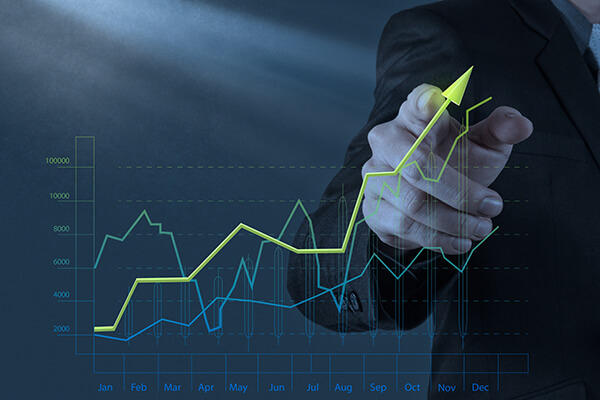
Applying Capitalism: You become libertarian real quick when you’re an entrepreneur because you realize you want to keep what you earn and you only get to earn what is made on your own merit.
First of all, Andrew Yang says that Universal Basic Income is capitalism starting from not zero. I say no, Universal Basic Income is socialism with lipstick. It’s not an enhanced form of capitalism. It’s a different way to redistribute from the government. I don’t care for Andrew’s policies one bit, but he’s running a flawless campaign. I have to give him credit for doing an amazing job at running for president, but I don’t care for him one bit. He knows he’s misleading people. He knows that he’s making up problems that don’t exist. If you watched his Joe Rogan interview, he sat there and talked about problems that are not real like truckers being replaced. Their wages are going up. There’s a shortage of truckers because there are many other unskilled opportunities. There are many low-skilled jobs and many opportunities for low-skilled people that there’s a shortage of truck drivers because nobody wants to work those long hours driving a truck. What has happened? Truck driver’s salaries have gone up. There’s recruiting happening to get people to become truck drivers. No, we don’t have a problem in all the truck drivers going away. We have an increased demand, prices going up. He makes up problems where there are no problems to address, but he’s getting a lot of attention for it.
He’s the only one that’s on that bandwagon. There are a lot of the Silicon Valley elites that tend to feel the same way. When you do have that insight into technology and the speed at which things are becoming automated. The argument I would say has some merit to it when you think as far as the automation of certain unskilled things. Are you saying the transition to that is going to take longer than people think? Where are you coming from?
The Universal Basic Income, if it replaced all other government programs, would be a step in the right direction, but that’s not what Yang argues for. Yang is arguing for doling out checks to everyone. Not only is it not appropriate, but it’s also not needed. We talked about how the standard of living continues to rise and real prices continue to decline. The trend is going only to continue as we talked about in the example of Google giving out free phones. That is going to continue to happen and it’s happening at a faster rate. Look how the idea of a grocery store is in our society. We take it for granted, but a grocery store has only existed for this much of our history and we talk about food prices. Food prices are at an all-time low. I can go to the grocery store and get goji berries from China for $8. It’s the whole idea of “I, Pencil,” that famous piece that go into the pencil. I’m not of the opinion that Universal Basic Income is even necessary because we continue to have fallen-prices and increasing set of living.
It’s one of those things where it’s hard sometimes to distinguish, unless you’re a professional marketer like yourself, what’s really being said. It makes total sense to me and from Donald Trump’s standpoint. A lot of his tactics whether it was the debate tactics or his tweets or his punch lines, the amazing nature in which he marketed himself and won. I look at AOC and some of the same things. I would say that you have some insight than most don’t because you can read between the lines and I can see that with Andrew Yang. I don’t think he’s as conspicuous. He’s using somebody where there is a stronghold behind his theory because of Silicon elites. They have all of this concern with artificial intelligence, Moore’s Law and how this is all happening and it’s getting out of control. We’re going to have to provide for people’s well-being. You’re basically saying he doesn’t necessarily believe in it. It’s a narrative for him to run on.
If you look at how our brains are wired, we are influenced by momentum and direction more than anything else. The projection of where things are going in the future. You and I and everyone reading know that the trend of the world on a macro level is impressive. The things we’re about to invent and create are that much more impressive. In order to get attention, Andrew has to stand there and say, “There’s this thing going on that is going to replace all of the jobs.” He has to set the trend for how things are going. He talks about suicide rates going up. He doesn’t mention that they are higher in the fluent than they are among those at the bottom. He talks about the correlation between suicide rates and economic hardship. Economic hardship is at an all-time low. He is going to talk about the paint a picture of a trend that is happening because you are likely to pay attention if the future is a coming trend that is dangerous. He has a terrible solution of giving out free money to people, which is why he’s capturing attention. He’s doing a wonderful job at it, but he is doing it intentionally misleading.
The society, in general, has been highly influenced by movies and TV and what we’ve been told to future is. We’re always looking to the future. I’ve never made the connection that there are these short-term spikes and interest and intrigue on purpose to gain attention and popularity based on how we’ve been programmed in the sense of society.
No one grows when times are good; you grow from pain. Share on XIt’s the first time that a message can be delivered at scale like in a click of a button. It’s because of that, we are incentivized to do whatever gets attention on a mass scale, especially when you’re doing something like running for President. This is new in our evolution for that to even be possible. That’s why it’s a battle with the truth and a battle with reality.
Let’s do this because this has been an awesome conversation. Thank you for sharing your insight. Hopefully, this was valuable to the audience. Why don’t you talk about maybe some something that’s more a little more positive? You obviously are getting negative feedback on ideas of capitalism, which is understandable, but what do you see as the positive things? How are you seeing people open up to the ideas of freedom, entrepreneurship and the opportunities that exist and are open to while we live in such an amazing time? Talk about your pulse there and if you see that growing in popularity to that perspective.
If we remove the labels, if we remove the way we define it, freedom and capitalism are more popular than ever. If you look at your average college graduate who is faced with the decision of, “Do I get a job or do I start my own thing?” Look at young people where the most popular desired job is to be a YouTuber. I look at some of my peers who were saying, “Do you know what I want to do for a living is playing video games on Twitch.” These were absurd ideas, but because we have many new opportunities, the opportunities for entrepreneurship are greater than they had ever been. Entrepreneurship requires personal responsibility. You become libertarian quick when you’re an entrepreneur because you realize you want to keep what you earn and you only get to earn what is made on your own merit.
Based on that, I’m bullish and optimistic about the trend of young people, yes, a loud core is following AOC. All of their peers are making $1,000 a month from YouTube and they don’t need Andrew Yang to dole out cash to them. “Do any of them want to give up those opportunities?” “No.” It’s why I don’t fear when Elizabeth Warren says she wants to break up Google. It’s not going to happen. They’re creating too many opportunities for people. I’m incredibly optimistic. I see the political theater going on is entertaining but not a threat at all. The trend of capitalism, the trend of freedom is way too strong. I can see that trend accelerate if we look at a macro view, if we look at 100, 50 years ago. Technology is only going to accelerate that because only half the world has internet access. There is still an entire half of the world just coming online and having access to information and having access to opportunities. The global marketplace is about to double.
One of SpaceX’s big projects is the satellite internet and bringing that to Africa, India and parts where they don’t have the infrastructure.
When that happens, you’re going to see a boom that we have never seen before. That requires markets, freedom and capital. We are still on the up and up and that is only going to continue.
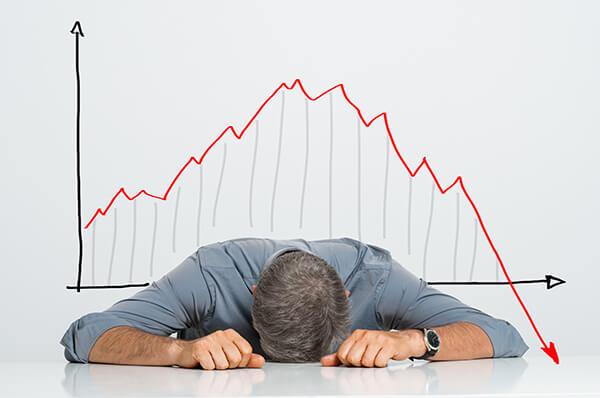
Applying Capitalism: Capitalism is the only system in which bad ideas fail.
That’s where the optimism part and part of me is excited about the future, my future, my kids’ future. At the same time, I look at things that have happened that have put the world in a tough spot. Whether it’s the unfunded obligations we have with the amount of debt that’s out there with Social Security and pensions having major issues. I also look at where you have a big percentage of the Nasdaq who is on the brink of junk status, looking at how capital is being raised to fund companies that aren’t necessarily making a profit. The only way they can be payroll is to continue to get rounds of funding. How do you reconcile your optimism with some of the real things we’re facing?
It’s for those reasons that sometimes I do look at certain companies. I do think we are right for that to adjust, but I think we can look squarely in the face of government policy specifically interest rates as dictated by the Federal Reserve. I know they’re independent, but they’re the fourth branch of government. They’re manipulating interest rates. We all agree that has been a problem and it’s the reason why we have the asset prices that we have. Those things have to adjust. I am bullish on the fact that when we get punched in the mouth and if we have an economic collapse, all of those opportunities get funded into the new things that have already been opened up.
The number one job among children under twelve, they want to be YouTubers. I’m not suggesting that all the coders are going to become YouTube stars. That would be a boring channel. The reality is we’re on the cusp of new waves of opportunities starting to hit mass. When we have a reset or if we have a transition, it’s simply going to be one era to the next era. It’s what happens after every meltdown is you open up industries that didn’t exist before. Contrary to what Andrew Yang would like you to believe, that will happen.
I have a theory that the greater the hardship, the more you expand the possibility on the other side of the spectrum. That’s in personal life and that’s in business too. The wounds hurt in the short-term, but the process in which you heal builds a stronger muscle to do more and be more. We have some pain. There’s a lot of pain, but the lessons that are going to be learned from society are going to be incredible. It may not feel like that when you’re the one that’s not getting your pension check, your social security check or the cost of things have gone up or however, the economy responds to it. At the same time, you look at what good is going to come from it because people are hardwired to solve problems and to help others overcome challenges. They didn’t necessarily have the word Capitalism back then. People observe the marketplace and they intuitively figure out, “I’m going to go do this because that’ll benefit that, but it’ll also benefit me.” It’s weird how we operate, but it’s going to be as you put it at scale.
No one grows when times are good, you grow from pain. It’s why the bailouts were damaging. Not because of the misallocation of resources, not because of taxpayer cost. It was dangerous because we deprived ourselves of the beauty of pain. Pain makes us grow. It makes us better and it makes us solve bigger problems and as a result, we’ve gotten soft. We are afraid of getting punched that we don’t even enter the ring. We don’t even have a chance of victory anymore. By the time we get punched in the mouth, you’re going to have a lot of scared people running around who will have to learn how life works, which is exactly what should happen. I get the benefit of working with a lot of entrepreneurs and I did a little bit of a podcast interview tour where I interviewed in person Gary Vaynerchuk, Brian Lee who has $3 billion companies at 47 and Bedros Keuilian the Founder of Fit Body Boot Camp.
All three of them are the children of immigrants. I saw this as a trend come up. I asked them about it. The universal feedback among those three was, “I came here with nothing. I had to learn how to create and solve problems and work hard. People who were born here, people have had it good since they were born, they don’t have that hustle. They don’t have that ability. If I go to Ukraine and speak to entrepreneurs who are first generation capitalists, they’re hungry. Any sniff of freedom they cherish, hung onto, cling to and fight for. Any advancement they have from where they grew up, where their parents were oppressed by the government, where they had to escape tyranny, they are ready for opportunities. Here we want to go back to government control. We accomplished what everybody else wants and we’re getting soft. We could use a good punch in the mouth and it will be welcome refreshment when it happens.”
It’s long overdue, but everything you’re saying I would echo that. I see it in my kids. My wife grew up in the hood of Mexico. Her brothers have moved here and sometimes when there’s a safety net, it’s amazing what people will do not to learn the lesson. That’s the other part of human nature, even though we’re compelled to create value and to solve problems, we’re also compelled to be lazy sometimes or find shortcuts. It’s one of those other attributes of humankind that you need been to be leery up because kids these days are soft at the same time they’re meant to understand how efficiency plays into solutions. When those times get difficult, I have a good feeling they’ll have the wherewithal to learn technology, understand the technology and how that applies to whatever the challenge is at hand.
They will have to. There’s no choice in the matter of capitalism. One final piece on this is I’ve made the argument that the way we can convert people who disagree with us, who ask about converting people to our side of the argument is if you remind them that capitalism is the only system in which bad ideas fail. When things collapse, a lot of bad ideas will go with it. A lot of companies that raised money and can only make payrolls by raising another round, they will fail because they didn’t have value in the marketplace. You can’t say capitalism is the only system in which good ideas succeed. Theoretically, you could have a government create a great solution. The chance of that happening is low, but it’s possible. Capitalism is the only system where bad ideas go away and we will see that in the next crash unless the government gets involved, which is antithetical to capitalism.
This has become a calling for you. At least that’s what it sounds like. I know it’s a big responsibility, but thanks for all you’re doing to advocate these ideas. How can people learn more about you and follow you? I know you’re active on social media. What are the best ways?
My handle is @RyanDanielMoran on Instagram. My podcast is Capitalism.com. There’s a generation of young people out there who need an outlet for entrepreneurship and this the only way we’re going to convert them to our side of the aisle. If Robert Kiyosaki had a rich son, it might be me taking the torch to this generation that is polarized on capitalism versus socialism.
Ryan Daniel Moran, it’s been a pleasure. Thank you much for taking the time. You are putting up some amazing content. What I also love about you is you’re bold, you speak your mind and you’re a seeker of truth. It’s inspiring. Thank you.
I appreciate it. Thanks for having me.
Important Links:
- Capitalism.com
- The One Percent
- Naval Ravikant
- Scott Adams
- The Jungle Book
- Ray Dalio
- Even Stevens
- TOMS Shoes
- Andrew Yang – Previous episode
- Twitch
- SpaceX
- Fit Body Boot Camp
- @RyanDanielMoran – Ryan’s Instagram
- www.Capitalism.com
- https://Podcasts.Apple.com/us/podcast/capitalism-com/id721987947?mt=2
- https://www.Facebook.com/capitalismbethechange/
- https://www.Facebook.com/groups/capitalism.com.community/
- https://www.Facebook.com/ryan.moran
- https://www.LinkedIn.com/company/capitalismbethechange/
- https://www.LinkedIn.com/in/theryanmoran/
- https://Twitter.com/capitalism_com
- https://Twitter.com/RyanMoran
- https://www.Instagram.com/capitalismdotcom/
- https://www.Instagram.com/ryandanielmoran/
- https://www.Facebook.com/groups/capitalism.com.community/
About Ryan Moran
 Ryan Daniel Moran is a serial entrepreneur, author, speaker, and investor. He is driven by the belief that entrepreneurs solve problems, and that the world needs more empowered entrepreneurs.
Ryan Daniel Moran is a serial entrepreneur, author, speaker, and investor. He is driven by the belief that entrepreneurs solve problems, and that the world needs more empowered entrepreneurs.
As the founder of Capitalism.com, his mission is to champion and serve entrepreneurs, because entrepreneurs drive change, create jobs, influence the economy, and uplift their families and communities to create a better world.
Through his training and podcast at Capitalism.com, Ryan is responsible for creating more than 100 millionaires, many in 12 months or less! He is passionate about sharing the knowledge he has gained from founding, running, and investing in a number of e-commerce, and physical products businesses.

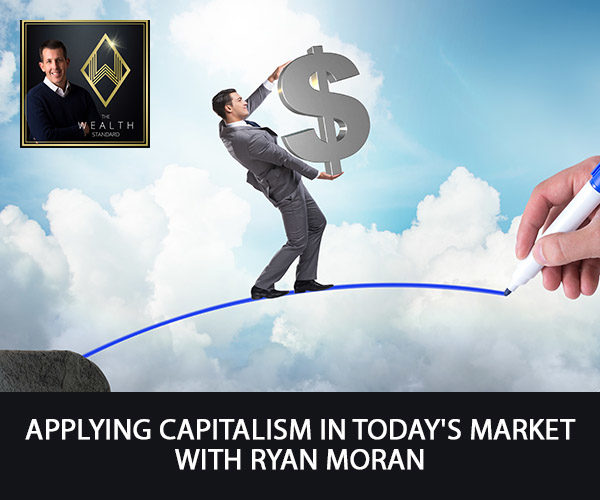
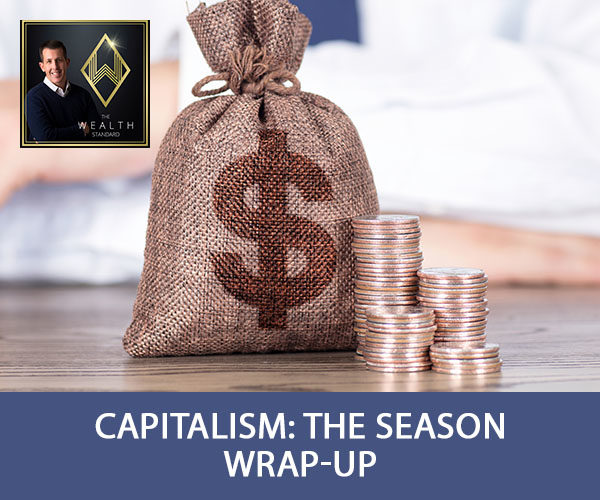
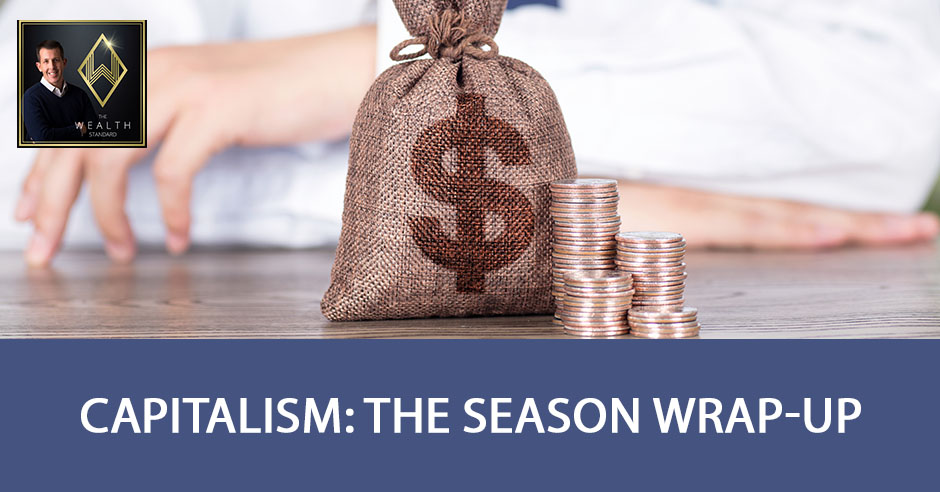

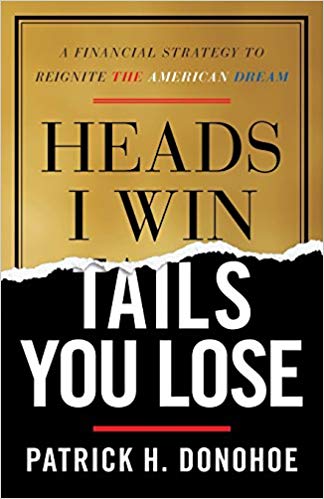
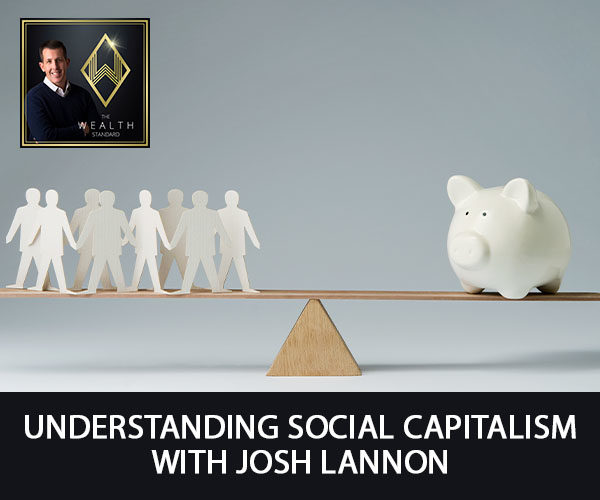
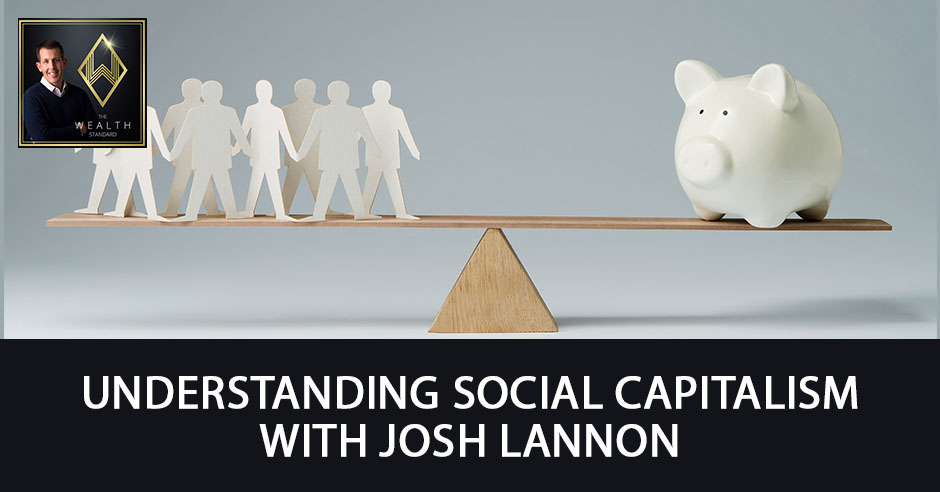
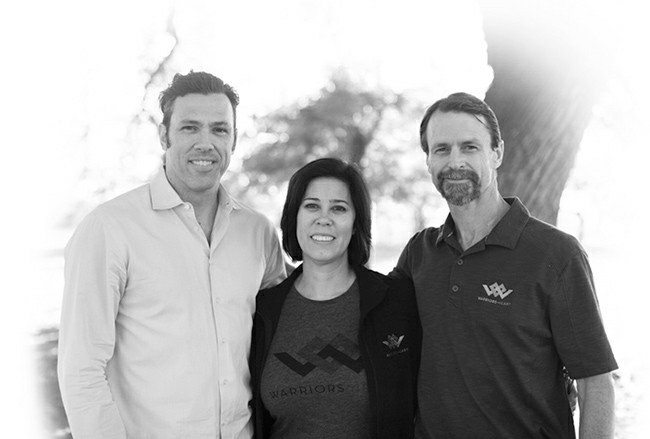

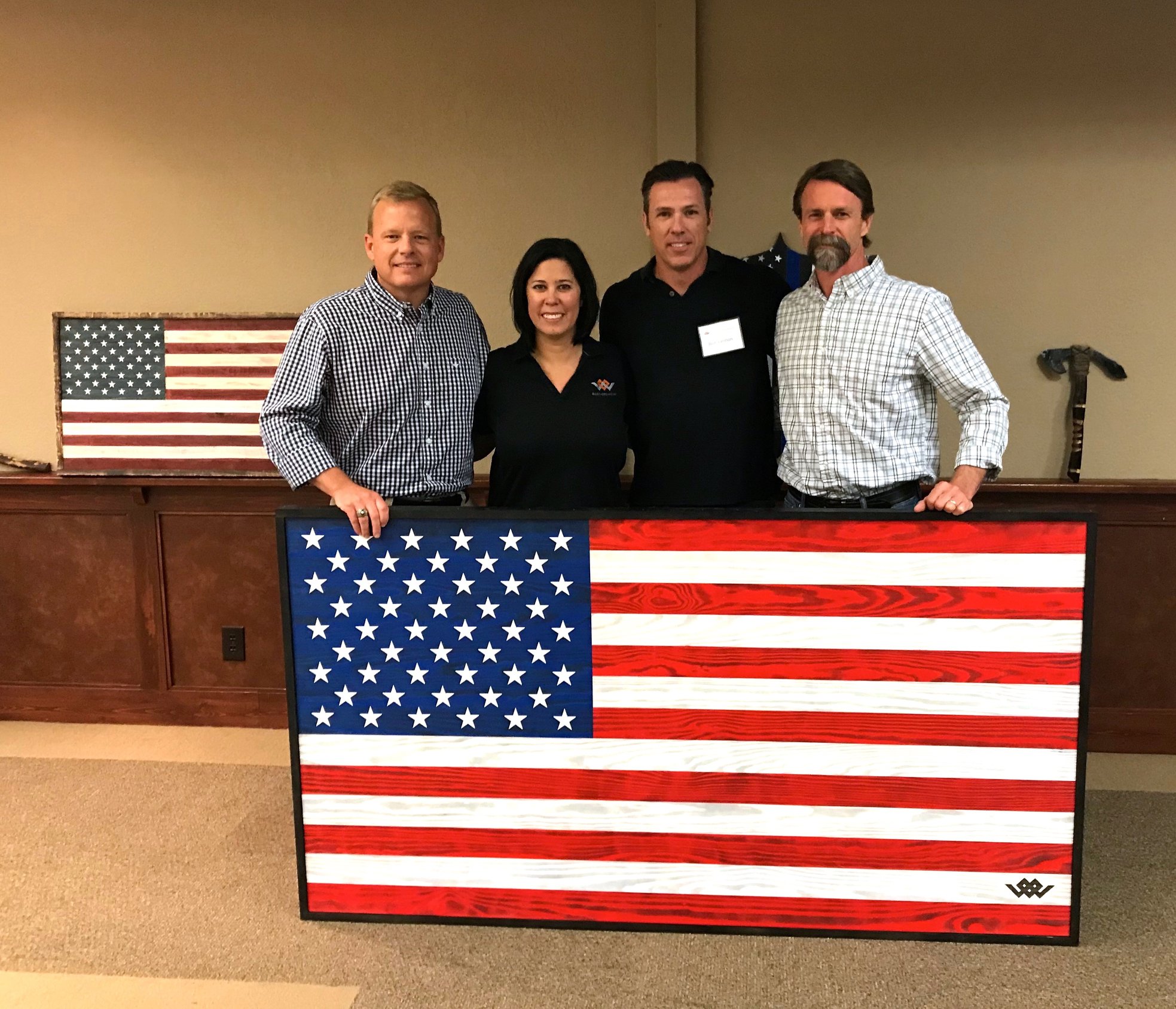


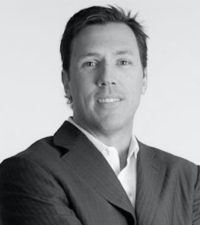 The world economy is crying out for entrepreneurs to take a stand, create jobs, and solve problems. Doing good and making money does not have to be mutually exclusive. With an inspiring story, Josh and Lisa Lannon, both of whom are Rich Dad Advisors on Social Entrepreneurism and Behavioral Change, turned a problem into a solution, built a passion driven organization, and have envisioned the coming megatrend of social entrepreneurialism. A global trend of individuals demanding more from their life’s work, the Lannon’s advise on building organizations and investing with purpose, focusing on a triple bottom-line: People, Planet and Profit.
The world economy is crying out for entrepreneurs to take a stand, create jobs, and solve problems. Doing good and making money does not have to be mutually exclusive. With an inspiring story, Josh and Lisa Lannon, both of whom are Rich Dad Advisors on Social Entrepreneurism and Behavioral Change, turned a problem into a solution, built a passion driven organization, and have envisioned the coming megatrend of social entrepreneurialism. A global trend of individuals demanding more from their life’s work, the Lannon’s advise on building organizations and investing with purpose, focusing on a triple bottom-line: People, Planet and Profit.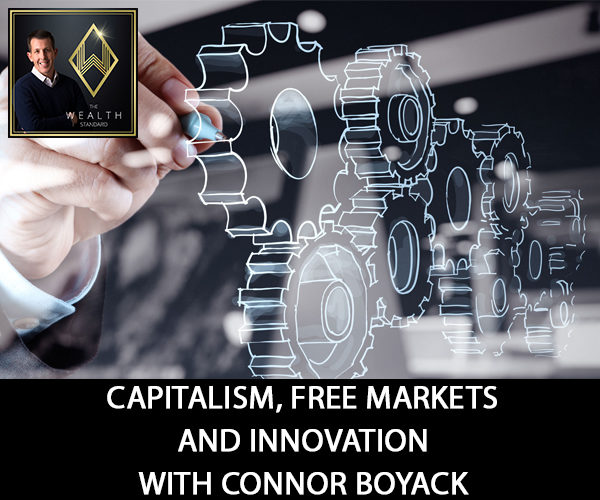
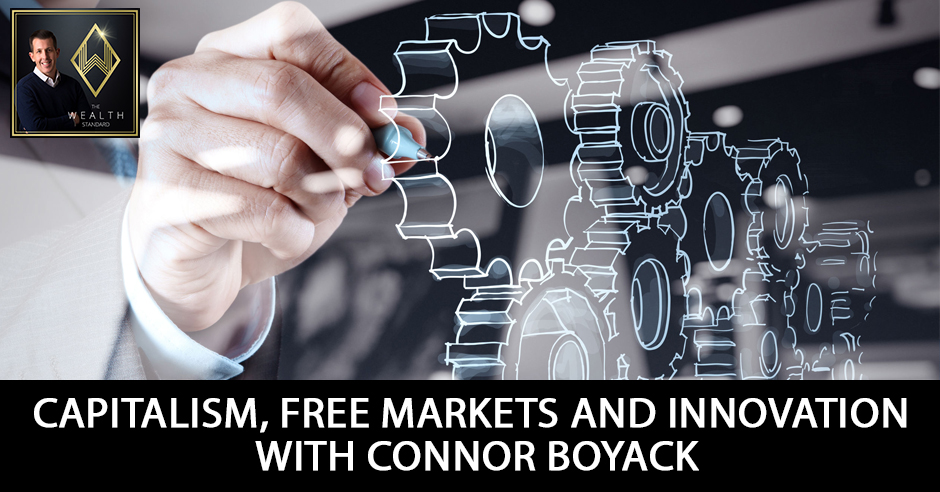




 Connor Boyack is president of Libertas Institute, a public policy think tank in Utah. He is also president of The Association for Teaching Kids Economics, a national organization helping teachers educate their students about the free market.
Connor Boyack is president of Libertas Institute, a public policy think tank in Utah. He is also president of The Association for Teaching Kids Economics, a national organization helping teachers educate their students about the free market.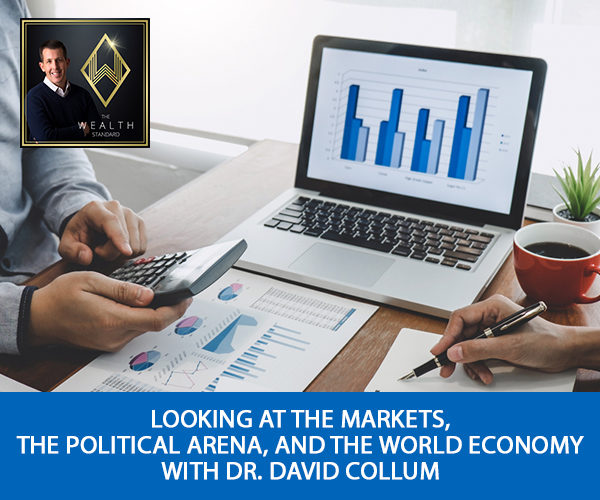
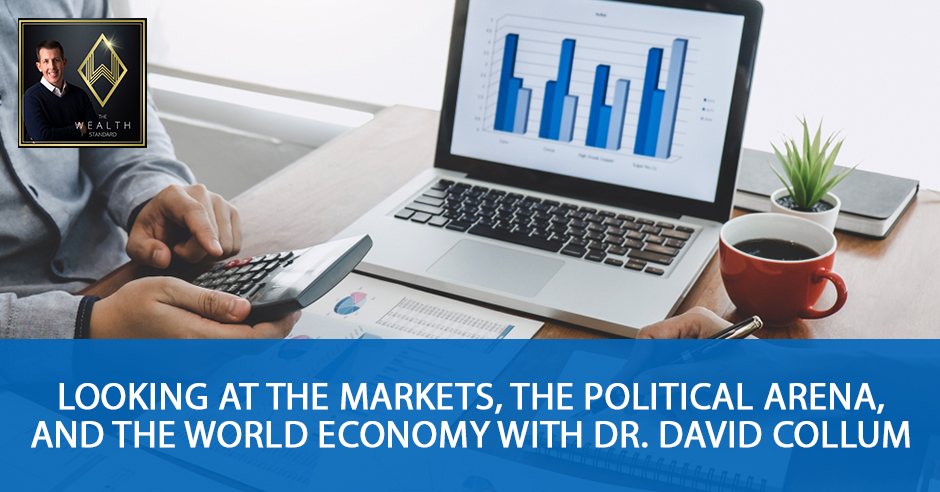

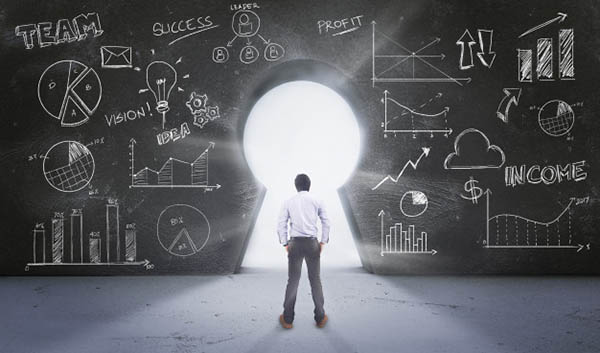


 David Collum is the Betty R. Miller Professor of Chemistry at Cornell University and is a regular and valued presence on the internet commenting on the financial system and the predicaments of our time. David has contributed many Year in Review articles and podcasts to the Peak Prosperity community, all of which are available online at
David Collum is the Betty R. Miller Professor of Chemistry at Cornell University and is a regular and valued presence on the internet commenting on the financial system and the predicaments of our time. David has contributed many Year in Review articles and podcasts to the Peak Prosperity community, all of which are available online at 













